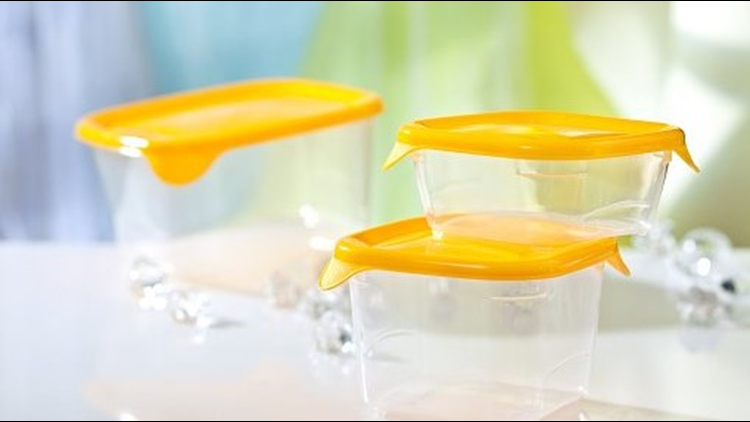KUSA — Newly released American Academy of Pediatrics guidelines may dramatically change the way we feed our children.
The new report draws into question certain chemicals that are found in the containers, plastic wraps and food additives.
What additives and chemicals do these new guidelines focus on?
Bisphenols (BPAs) are found in plastic and as an additive to metal containers to make the food/beverage last longer. BPAs act like a synthetic estrogen (which is a female hormone) and can disrupt how fat and pancreatic cells function. Places you may find BPAs: water bottles, metal cans (like soda pop).
Phthalates are chemicals that can affect fat and carbohydrate metabolism and even increase insulin resistance, which is tied to obesity. Phthalates are found in plastic wrap and certain plastic containers.
Perfluroalkyl chemicals (PFCs) and perchlorates are another category of chemicals that are found grease-proof paper and paperboard. Both can disrupt thyroid and endocrine system function, and PFCs are linked to obesity and decreasing the immune system.
PFCs are found in non-stick cookware, stain resistant materials. Perchlorates are in food packaging.
Nitrates/nitrites are food additives especially seen in packaged and processed meats. Hot dogs, lunchmeat and other types of processed meats contain these chemicals. They are linked to cancer, especially colon cancer they can also can disrupt the thyroid.
What are the AAP recommendations for parents?
- Eat more fresh fruits and vegetables
- Avoid processed meats (especially when pregnant)
- Don't microwave food or drinks (especially formula or breast milk) in plastic
- Don't put plastic in the dishwasher
- Switch to glass and stainless steel containers
- Look for the recycling codes on the bottoms of products and avoid following codes 3 (phthalates), 6 (styrene), and 7 (bisphenols)
- Wash your hand before handling all food or drinks, especially fruits and vegetables that cannot be peeled.



